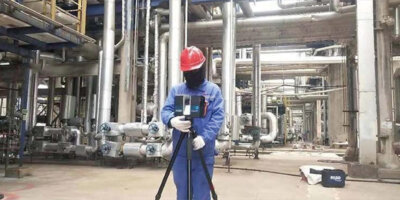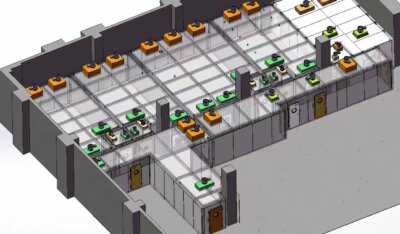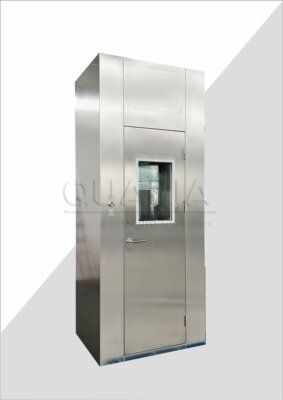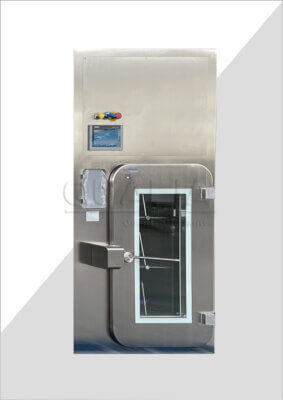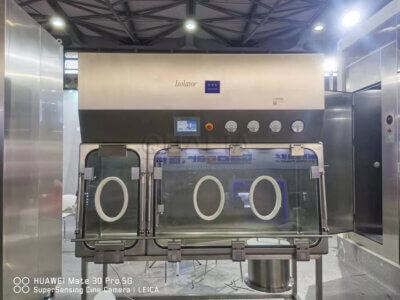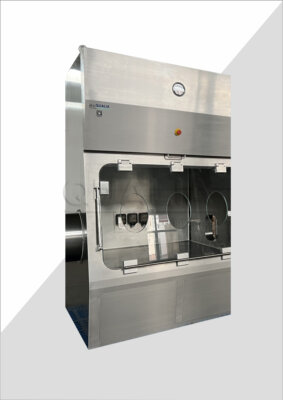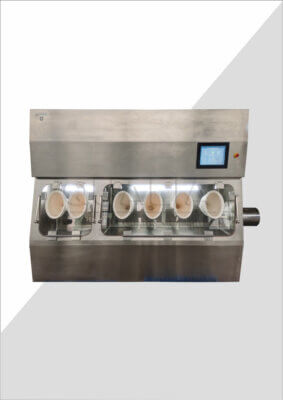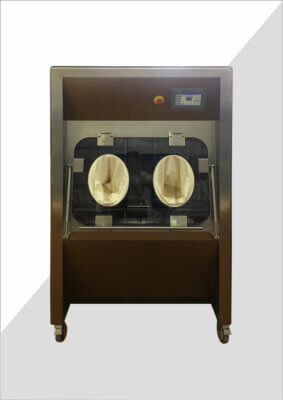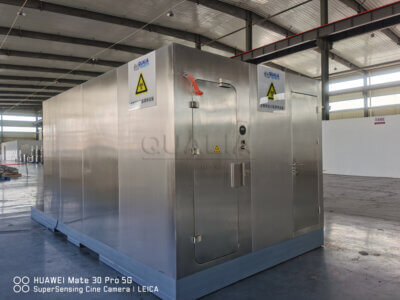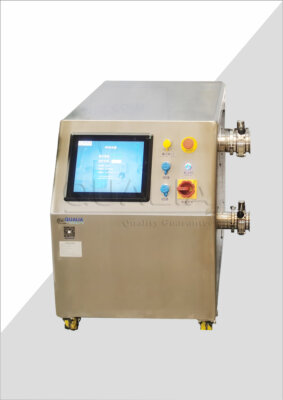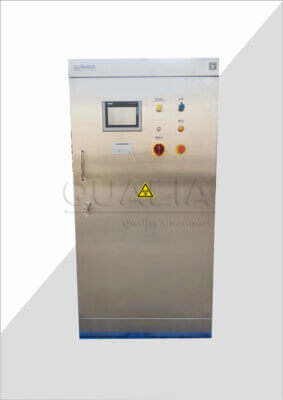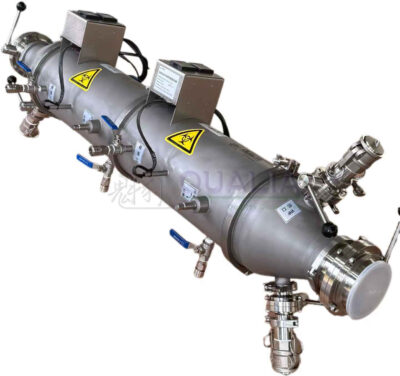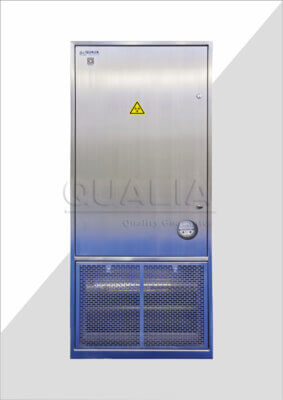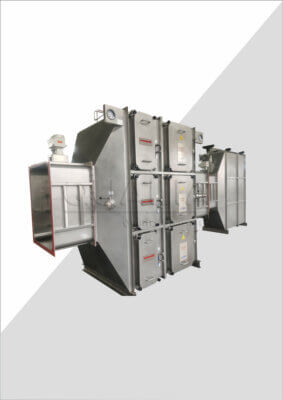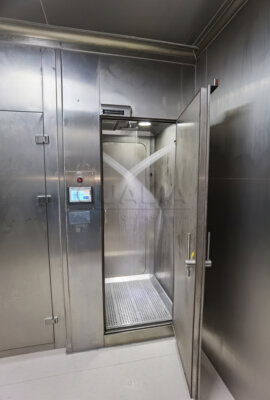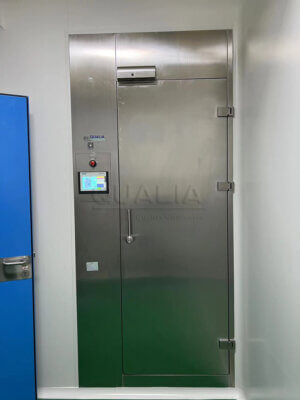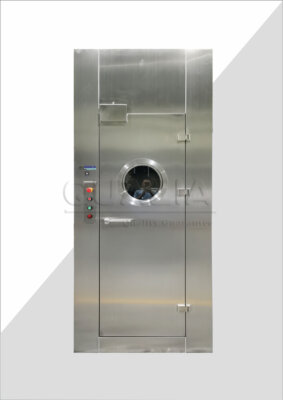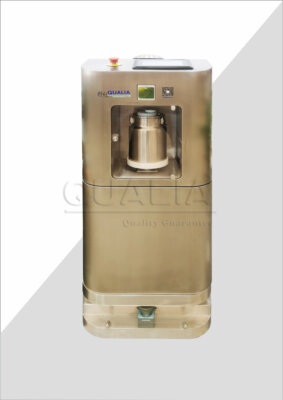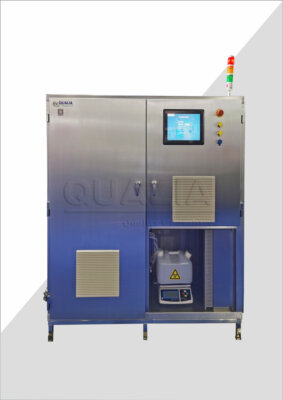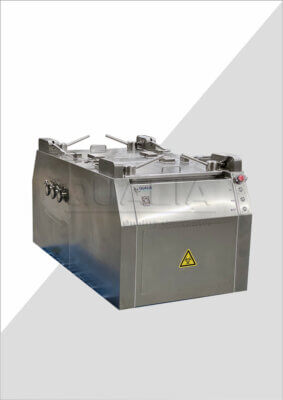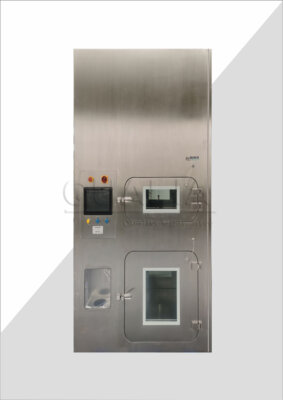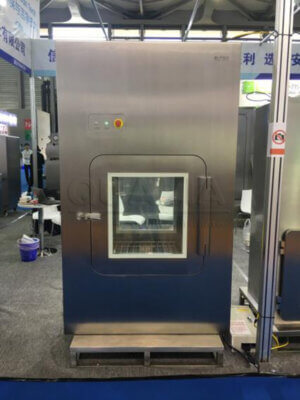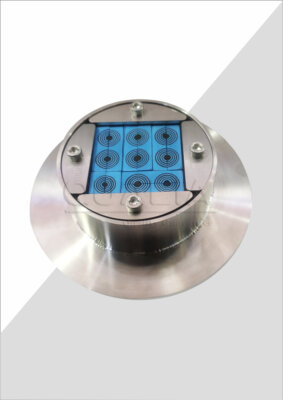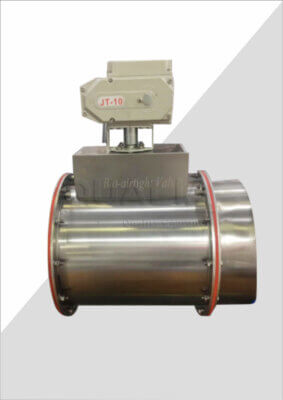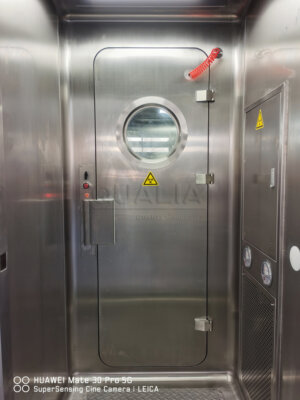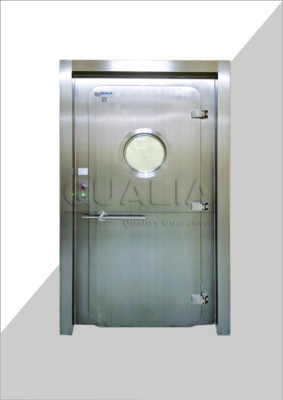Biosafety cabinets are critical pieces of laboratory equipment, designed to protect personnel, products, and the environment from potentially harmful biological agents. When investing in such essential equipment, understanding the warranty coverage is crucial for long-term peace of mind and cost-effective operation. This article delves into the intricacies of biosafety cabinet warranties, exploring what's typically covered and what laboratory managers and researchers need to know to make informed decisions.
Biosafety cabinet warranties can vary significantly between manufacturers and models. Generally, they cover defects in materials and workmanship for a specified period, which can range from one to seven years. However, the devil is in the details, and it's essential to understand the nuances of coverage, exclusions, and the responsibilities of both the manufacturer and the end-user.
As we explore the world of biosafety cabinet warranties, we'll uncover the key aspects that differentiate various warranty offerings, from standard coverage to extended protection plans. We'll also examine how these warranties align with industry standards and regulatory requirements, ensuring that your laboratory remains compliant while maximizing the lifespan of your investment.
QUALIA, a leading provider of laboratory equipment, offers comprehensive warranty coverage for its biosafety cabinets, ensuring peace of mind and long-term value for researchers and laboratory professionals.
What Does a Standard Biosafety Cabinet Warranty Cover?
When purchasing a biosafety cabinet, the standard warranty is often a key consideration. These warranties typically cover the basic components and functionality of the cabinet, providing protection against manufacturing defects and premature failures.
Most standard warranties for biosafety cabinets include coverage for parts and labor for a specified period, usually ranging from one to five years. This coverage ensures that any defects in materials or workmanship will be addressed by the manufacturer at no additional cost to the customer.
Diving deeper, it's important to note that standard warranties often cover critical components such as the motor, blower, electrical systems, and structural elements of the cabinet. However, consumable items like filters and light bulbs may have more limited coverage or be excluded entirely.
A typical biosafety cabinet warranty from reputable manufacturers covers parts and labor for at least one year, with some offering extended coverage of up to five years on specific components.
Here's a quick overview of what's commonly included in a standard biosafety cabinet warranty:
| Component | Typical Coverage |
|---|---|
| Motor/Blower | 1-5 years |
| Electrical Systems | 1-3 years |
| Structural Elements | 1-5 years |
| HEPA Filters | 30 days to 1 year |
| Lights/Bulbs | 30-90 days |
Understanding the standard warranty coverage is crucial for laboratory managers to anticipate potential costs and maintenance needs over the lifetime of the biosafety cabinet.
Are HEPA Filters Included in the Warranty?
HEPA (High-Efficiency Particulate Air) filters are critical components of biosafety cabinets, responsible for capturing harmful particles and ensuring a sterile work environment. Given their importance, many laboratory professionals wonder about their warranty status.
The coverage of HEPA filters in biosafety cabinet warranties can vary significantly between manufacturers. Some companies include limited warranty coverage for filters, while others exclude them entirely, considering them consumable items.
It's important to note that even when HEPA filters are covered, the warranty period is often shorter than that of other components. This is due to the natural wear and tear filters experience during normal use, which can affect their efficiency over time.
NuAire, a prominent biosafety cabinet manufacturer, offers a unique 5-year warranty that includes coverage for both supply and exhaust HEPA filters in their Class II, Type A2 Biosafety Cabinets.
Here's a comparison of HEPA filter warranty coverage from different manufacturers:
| Manufacturer | HEPA Filter Coverage |
|---|---|
| NuAire | 5 years |
| Thermo Fisher Scientific | Not covered |
| QUALIA | 1 year |
| Generic Brand | 30-90 days |
Laboratory managers should carefully consider the HEPA filter warranty when evaluating biosafety cabinets, as replacement costs can be significant over the lifetime of the equipment.
What About Extended Warranty Options?
For those seeking additional peace of mind beyond the standard warranty period, extended warranty options are often available for biosafety cabinets. These plans can provide coverage for several years beyond the initial warranty, helping to protect against unexpected repair costs.
Extended warranties typically offer similar coverage to the standard warranty but for a longer duration. This can include parts, labor, and sometimes even preventive maintenance services. However, it's essential to read the fine print, as extended warranties may have different terms or exclusions compared to the original warranty.
When considering an extended warranty, it's crucial to weigh the cost against the potential benefits. Factors to consider include the reliability of the biosafety cabinet model, the anticipated usage, and the laboratory's budget for equipment maintenance.
Bigneat, a laboratory equipment manufacturer, offers an impressive 7-year warranty on their standard range of laboratory safety cabinets, demonstrating confidence in their product's longevity and reliability.
Here's a comparison of extended warranty offerings from various manufacturers:
| Manufacturer | Standard Warranty | Extended Warranty Option |
|---|---|---|
| Bigneat | 7 years | N/A |
| QUALIA | 2 years | Up to 5 years |
| Generic Brand | 1 year | Up to 3 years |
Extended warranties can be a valuable investment for laboratories that rely heavily on their biosafety cabinets or have limited budgets for unexpected repairs.
How Does Certification Affect Warranty Coverage?
Certification of biosafety cabinets is a crucial process that ensures the equipment meets safety and performance standards. This process can have significant implications for warranty coverage, and it's essential for laboratory managers to understand the relationship between certification and warranty validity.
Most manufacturers require regular certification of biosafety cabinets to maintain warranty coverage. This typically involves annual inspections and testing by certified professionals to verify that the cabinet continues to meet safety and performance standards.
Failing to maintain proper certification can potentially void the warranty, leaving the laboratory responsible for any repair costs. Additionally, some manufacturers may offer extended warranty terms or other benefits for cabinets that are consistently certified on schedule.
Regular certification is not only crucial for maintaining warranty coverage but also ensures the ongoing safety and efficacy of the Biosafety cabinet warranty information, protecting both laboratory personnel and research integrity.
Here's an overview of how certification typically affects warranty coverage:
| Certification Status | Warranty Impact |
|---|---|
| Regularly Certified | Full coverage maintained |
| Overdue Certification | Potential warranty suspension |
| Never Certified | Warranty may be voided |
| Certified by Non-Approved Provider | Potential warranty issues |
Laboratories should prioritize regular certification not only for warranty purposes but also to ensure the continued safe and effective operation of their biosafety cabinets.
What Are Common Warranty Exclusions?
While biosafety cabinet warranties provide valuable protection, it's equally important to understand what's typically not covered. Common exclusions can vary between manufacturers but often include similar categories of damage or wear.
Most warranties exclude damage resulting from improper use, accidents, or unauthorized modifications. This means that if a cabinet is damaged due to user error or attempts at DIY repairs, the warranty likely won't cover the resulting repairs.
Normal wear and tear items, such as light bulbs and certain gaskets, are often excluded from long-term coverage. Additionally, damage from environmental factors like power surges or extreme temperatures may not be covered under standard warranty terms.
Thermo Fisher Scientific's biological safety cabinet warranty explicitly excludes filters and lamps from its 24-month coverage, highlighting the importance of understanding specific exclusions in warranty agreements.
Here's a table summarizing common warranty exclusions:
| Exclusion Category | Examples |
|---|---|
| User Error | Spills, impacts, improper cleaning |
| Unauthorized Modifications | DIY repairs, non-approved parts |
| Consumables | Filters, light bulbs, gaskets |
| Environmental Damage | Power surges, extreme temperatures |
| Lack of Maintenance | Failure to clean or certify as required |
Understanding these exclusions can help laboratory managers make informed decisions about equipment use, maintenance, and the potential need for additional insurance or protection plans.
How Do International Warranties Differ?
For laboratories operating globally or those considering purchasing equipment from international manufacturers, understanding the nuances of international warranties is crucial. Warranty terms can vary significantly between countries due to different regulations, service networks, and business practices.
International warranties may differ in duration, coverage, and claim processes compared to domestic warranties. Some manufacturers offer global warranty coverage, while others may have region-specific terms or require equipment to be returned to the country of origin for service.
It's also important to consider factors such as language barriers, time zones, and shipping costs when dealing with international warranties. These factors can affect the speed and efficiency of warranty service, potentially impacting laboratory operations.
NuAire provides detailed information on their international warranties, showcasing a commitment to global customer support and highlighting the importance of clarifying warranty terms for international purchases.
Here's a comparison of domestic vs. international warranty considerations:
| Aspect | Domestic Warranty | International Warranty |
|---|---|---|
| Duration | Typically standardized | May vary by region |
| Service Network | Usually extensive | Can be limited |
| Claim Process | Often streamlined | May involve additional steps |
| Shipping Costs | Usually minimal | Can be significant |
| Response Time | Generally quicker | May be delayed |
Laboratories purchasing biosafety cabinets internationally should carefully review warranty terms and consider the practical aspects of obtaining service across borders.
What Role Does Preventive Maintenance Play in Warranty Coverage?
Preventive maintenance is a critical aspect of biosafety cabinet care that can significantly impact warranty coverage and the overall lifespan of the equipment. Many manufacturers emphasize the importance of regular maintenance in their warranty terms, sometimes making it a requirement for continued coverage.
Proper preventive maintenance typically includes regular cleaning, filter checks, airflow verification, and other routine tasks that help keep the cabinet in optimal condition. By performing these tasks, laboratories can often prevent minor issues from escalating into major problems that might not be covered under warranty.
Some manufacturers offer preventive maintenance plans as part of extended warranty packages or as separate services. These plans can provide peace of mind and potentially extend the life of the biosafety cabinet beyond the warranty period.
Regular preventive maintenance not only ensures compliance with warranty terms but also contributes to the longevity and reliability of biosafety cabinets, ultimately protecting the safety of laboratory personnel and the integrity of research.
Here's an overview of how preventive maintenance relates to warranty coverage:
| Maintenance Aspect | Warranty Impact |
|---|---|
| Regular Cleaning | Maintains coverage |
| Filter Checks | Prevents voiding of warranty |
| Airflow Verification | Ensures continued coverage |
| Professional Servicing | May extend warranty |
| Neglected Maintenance | Can void warranty |
Laboratories should view preventive maintenance not just as a warranty requirement but as an investment in the long-term performance and safety of their biosafety cabinets.
In conclusion, understanding biosafety cabinet warranties is essential for laboratory managers and researchers to make informed decisions and protect their investments. From standard coverage to extended options, international considerations to maintenance requirements, each aspect plays a crucial role in ensuring the longevity and reliability of these vital pieces of equipment.
As we've explored, warranties can vary significantly between manufacturers, with some offering comprehensive coverage including HEPA filters, while others provide more limited protection. The importance of regular certification and preventive maintenance cannot be overstated, not only for maintaining warranty validity but also for ensuring the ongoing safety and efficacy of the biosafety cabinet.
When evaluating biosafety cabinet options, it's crucial to look beyond the initial purchase price and consider the total cost of ownership, including potential warranty and maintenance expenses. By carefully reviewing warranty terms, understanding exclusions, and considering factors like international service and extended coverage options, laboratories can make choices that align with their long-term needs and budgets.
Ultimately, a well-understood and properly maintained warranty can provide peace of mind, allowing researchers to focus on their important work with the assurance that their biosafety cabinet is protected against unexpected issues. As technology and industry standards continue to evolve, staying informed about warranty offerings and best practices for equipment care will remain an essential aspect of laboratory management.
External Resources
Class II, Type A2 Biosafety Cabinet Warranty | NuAire – This page provides details on NuAire's 5-year parts and labor warranty for Class II, Type A2 Biosafety Cabinets, including coverage for Supply and Exhaust HEPA filters.
7 Year Warranty – Bigneat A Caron Company – Bigneat offers a 7-year warranty on their standard range of laboratory safety cabinets, highlighting their confidence in the build quality and reliability of their products.
Lab Equipment Warranty | NuAire – This comprehensive page from NuAire outlines various warranties for different types of biosafety cabinets and laboratory equipment, including international warranties and specific details for each product category.
Biological Safety Cabinets – Thermo Fisher Scientific – This document specifies the warranty terms for Thermo Fisher Scientific's biological safety cabinets, including a 24-month warranty against defects in material or workmanship, with exceptions for filters and lamps.
Biosafety Cabinet Maintenance and Certification – Labconco – Although not directly linked here, Labconco typically provides warranty information and maintenance guidelines for their biosafety cabinets, ensuring compliance with safety standards.
Warranty Information – Baker – Baker's warranty page would detail the terms and conditions for their biosafety cabinets, often including parts and labor coverage for a specified period.
Laboratory Safety Cabinets Warranty – Germfree – Germfree's warranty information would cover their laboratory safety cabinets, including details on parts, labor, and any specific conditions or exclusions.
Biological Safety Cabinet Warranty and Support – Esco – Esco's page would provide warranty details, support information, and maintenance guidelines for their biological safety cabinets to ensure optimal performance and compliance.
Related Contents:
- Biosafety Cabinet Certification: Why It’s Crucial
- Biosafety Cabinet Sizes: Finding the Perfect Fit
- ISO 14644 and Biosafety Cabinets: Clean Air Standards
- Biosafety Cabinet Installation: What You Need to Know
- Class II Type B2 Biosafety Cabinets: Total Exhaust
- Class I Biosafety Cabinets: Features & Uses
- Choosing the Right Biosafety Cabinet: 5 Key Factors
- Recirculating Biosafety Cabinets: Efficiency & Safety
- Benchtop Biosafety Cabinets: Compact Lab Protection


